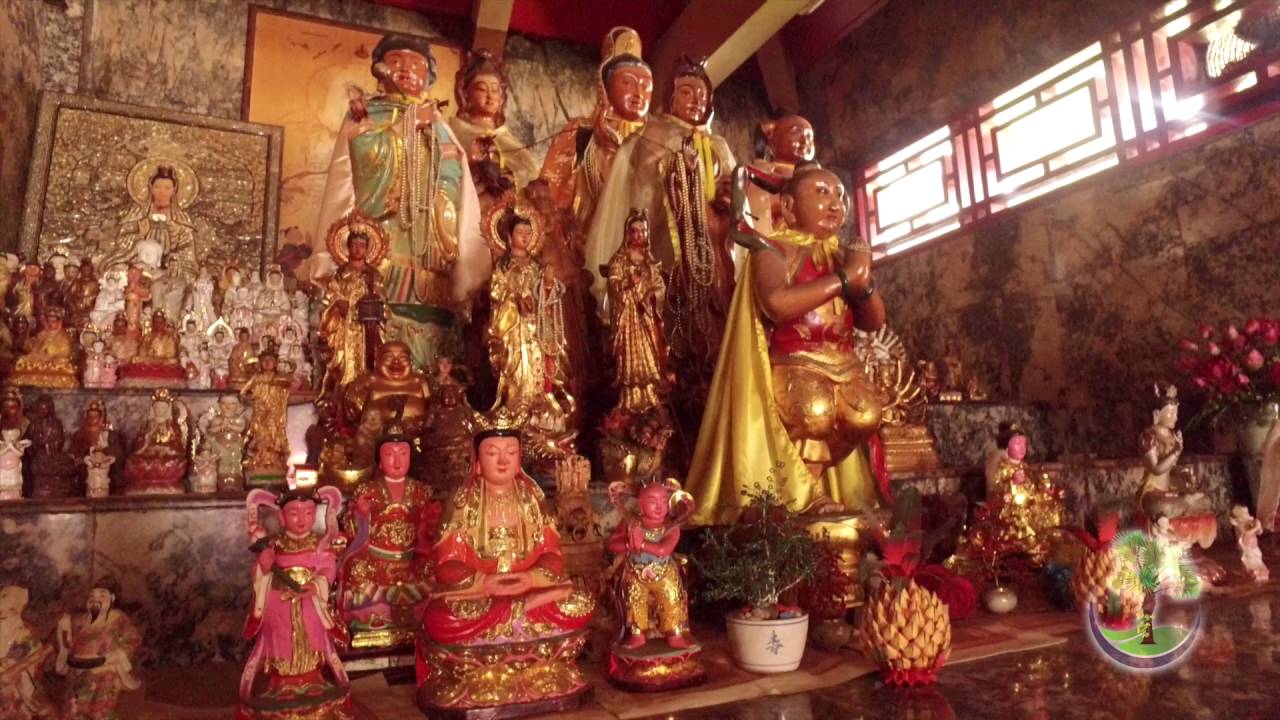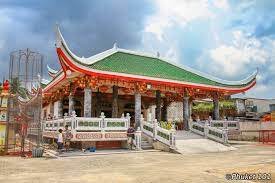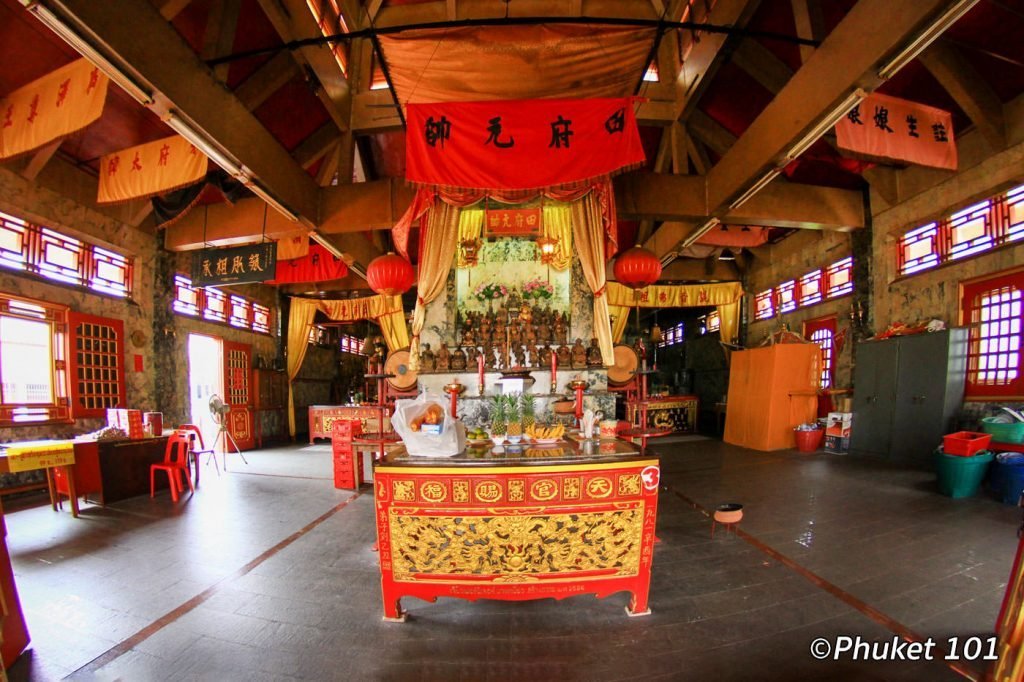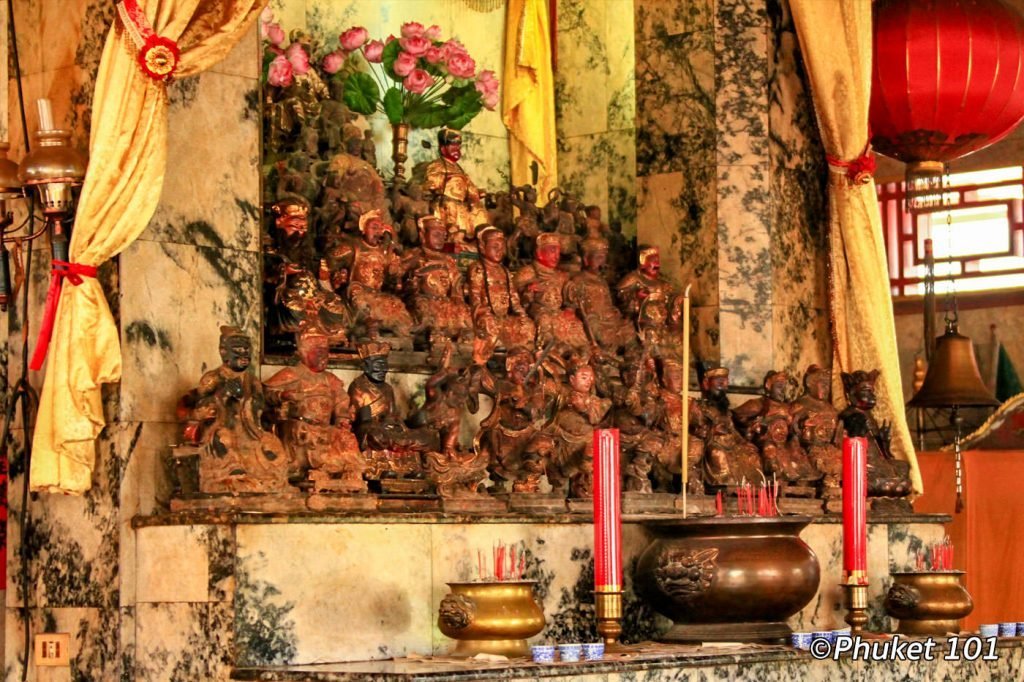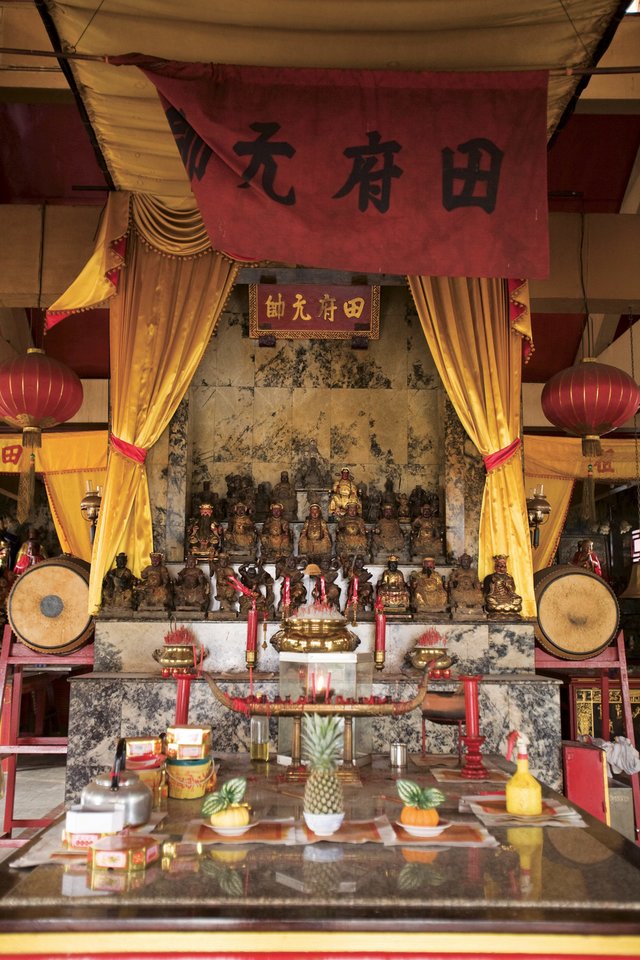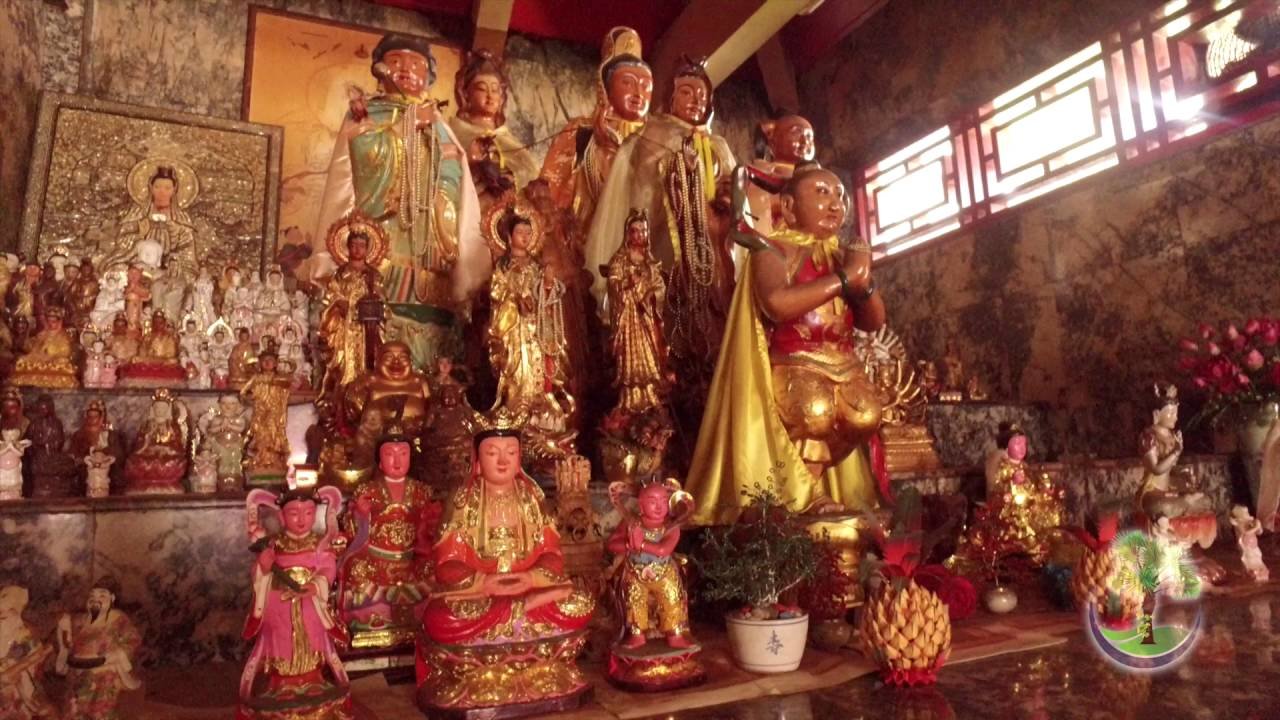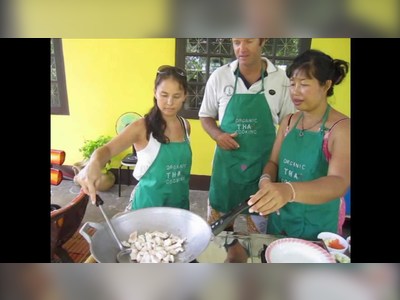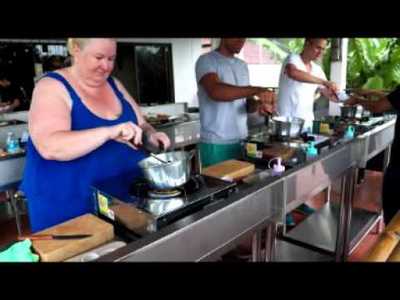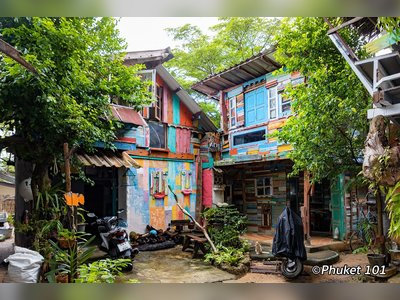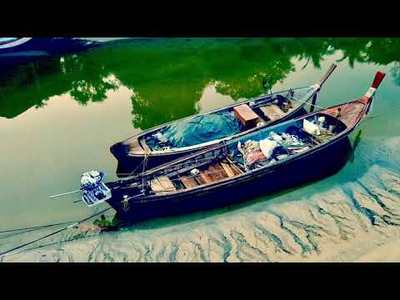Kathu Shrine – Lai Thu Tao Bo Keng
Kathu Shrine is one of the oldest Chinese shrines in Phuket, and it’s believed by many to be the birthplace of the Phuket Vegetarian Festival nearly two centuries ago.
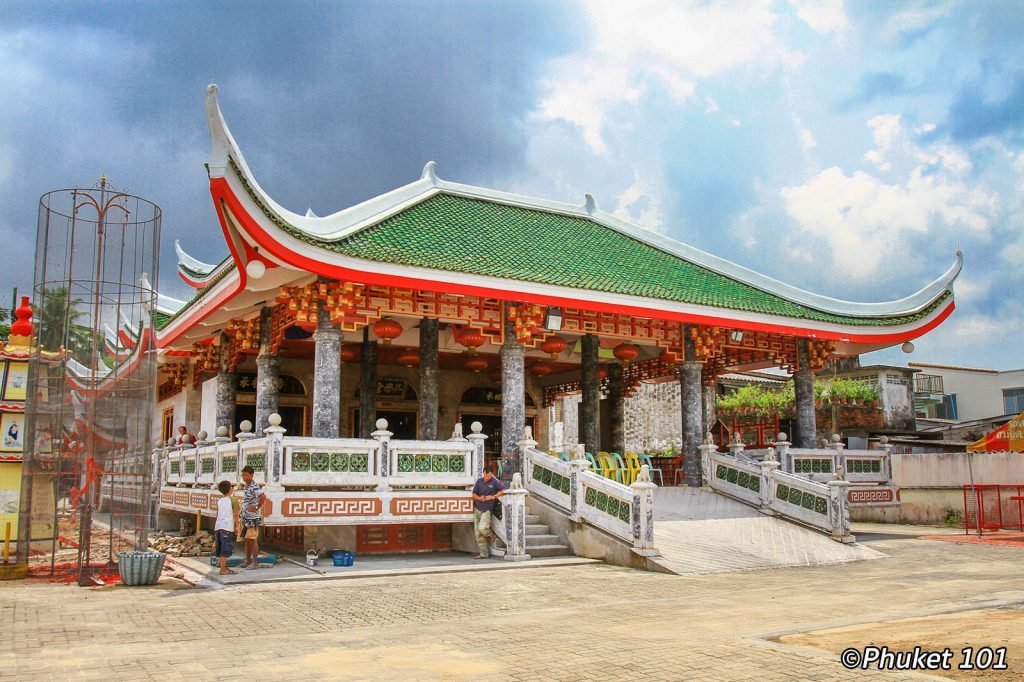
The shrine is located in the subdistrict of Kathu in the island’s interior, between Phuket Town and Patong Beach. Though it’s not well known as a tourist attraction, Kathu Shrine is an important part of the local Chinese-Thai community’s culture. It plays a major role in the annual Phuket Vegetarian Festival when the shrine comes alive with crowds of white-clad devotees joining the rituals and ceremonies of the nine-day event.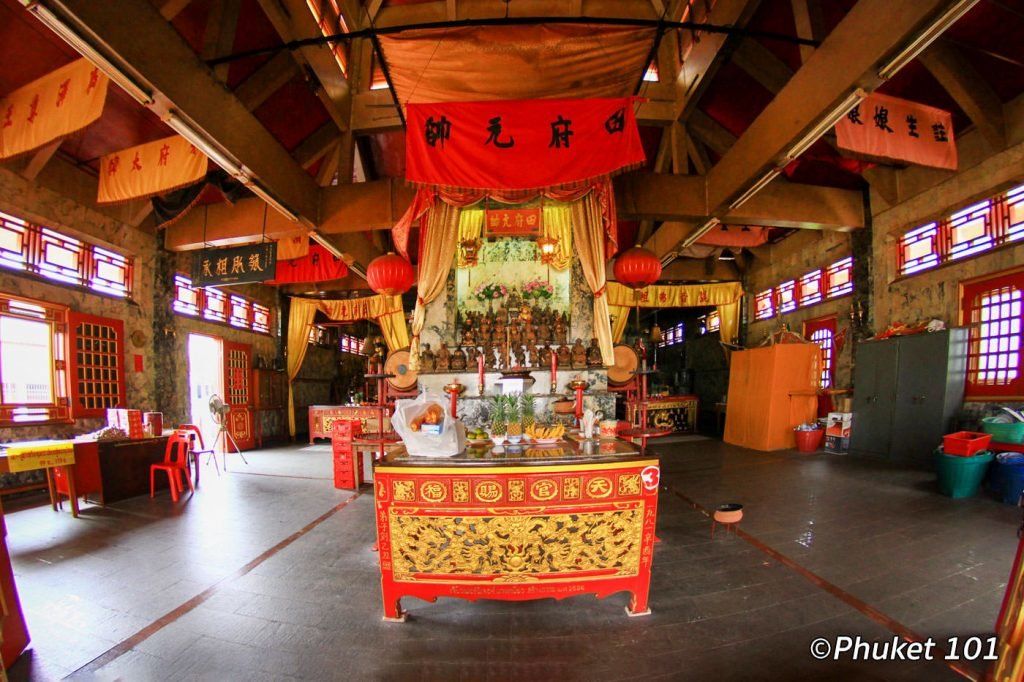
About Kathu Shrine
Kathu Shrine is also known as Lai Thu Tao Bo Keng or Aam Kathu in Chinese, while some older folks may call it Chai Tueng. The original shrine built 200 years ago was a simple place, and over the years it has expanded with more elaborate features added that are based on traditional designs of shrines in China.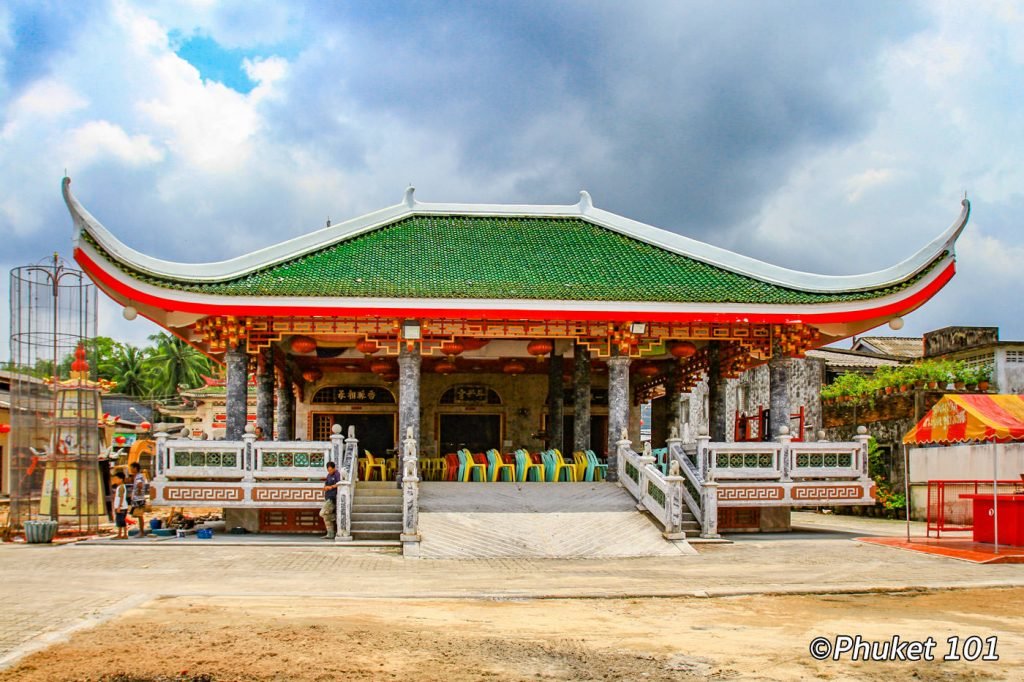
Stepping inside the shrine you’ll see several statues of Chinese gods and wooden Buddha images. There’s also a statue of the Guan Yin goddess, a highly revered deity among local people. The principal deity of Kathu Shrine is Tian Hu Nguan Soi, the same Chinese god that is the main deity for Jui Tui Shrine in Phuket Town.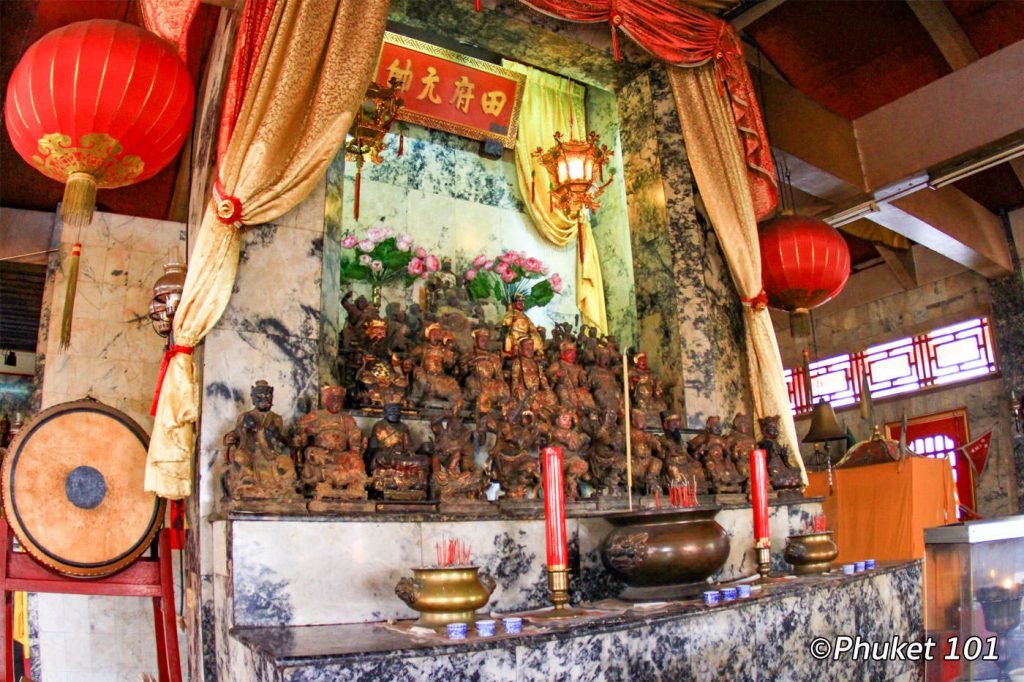
There are more than 40 Chinese shrines around Phuket, but Kathu Shrine is one of the most prominent. Together with Jui Tui Shrine and Bang Neaw Shrine in Phuket Town, Kathu Shrine plays a key role in the Phuket Vegetarian Festival and related activities.
Kathu Shrine and the Phuket Vegetarian Festival
In the early 1800s, the area of Kathu was at the heart of Phuket’s tin mining industry. Migrants from China were moving to the island in large numbers to work in the mines, bringing with them their beliefs and cultural practices. Kathu Shrine was established during these years.
In 1825, Phuket was in the midst of an epidemic, the same time that a Chinese opera troupe was visiting. Legend has it that one of the opera performers fell ill, sparking worry among the rest of the troupe because they had not done the rituals that they traditionally performed at that time of year in China. The troupe then did the rituals to honour their gods, which banished the illness and caught the interest of the local people, who continued to perform these same rites each year thereafter.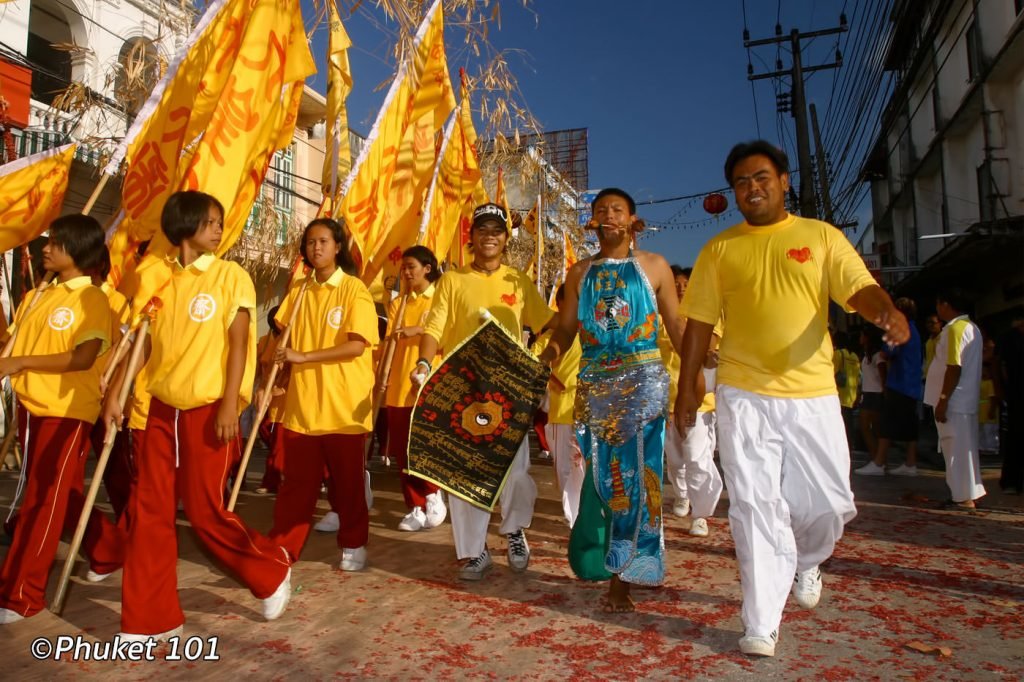
Before they left Phuket, the opera troupe gave the images of three Chinese gods named Tian Hu Nguan Soi, Lee Lochia and Sam-Hu-Ong-Iah to Kathu Shrine – these became the main deities honoured in the Vegetarian Festival.
Some years later, a Kathu Shrine committee member travelled to China and brought back the incense urn that’s now used in the festival as a symbol of the Nine Emperor Gods. He also brought back a book of scriptures that describes the ways of conducting the festival. This revered document is now kept in a secret room at Kathu Shrine, and not allowed to be taken out to other shrines.
During the nine days of the Phuket Vegetarian Festival, usually in October, Kathu Temple is crowded with worshippers wearing white clothing, who come to give incense to the gods and watch rituals like the pole-raising ceremony to open the festival, bladed ladder climbing, and fire-walking by the spirit mediums (“mah song”). The air is thick with incense smoke and exploding firecrackers. There’s plenty of vegetarian food given away to worshippers at the shrine and also sold by vendors in the surrounding streets.
Visiting Kathu Shrine
Kathu Shrine is found well away from the busy tourist areas of Phuket, so most visitors are unlikely to stumble upon it in their travels around the island. The surrounding village is low-key but there are a few interesting old houses to see, and the Buddhist temple Wat Kathu is about 500 metres away.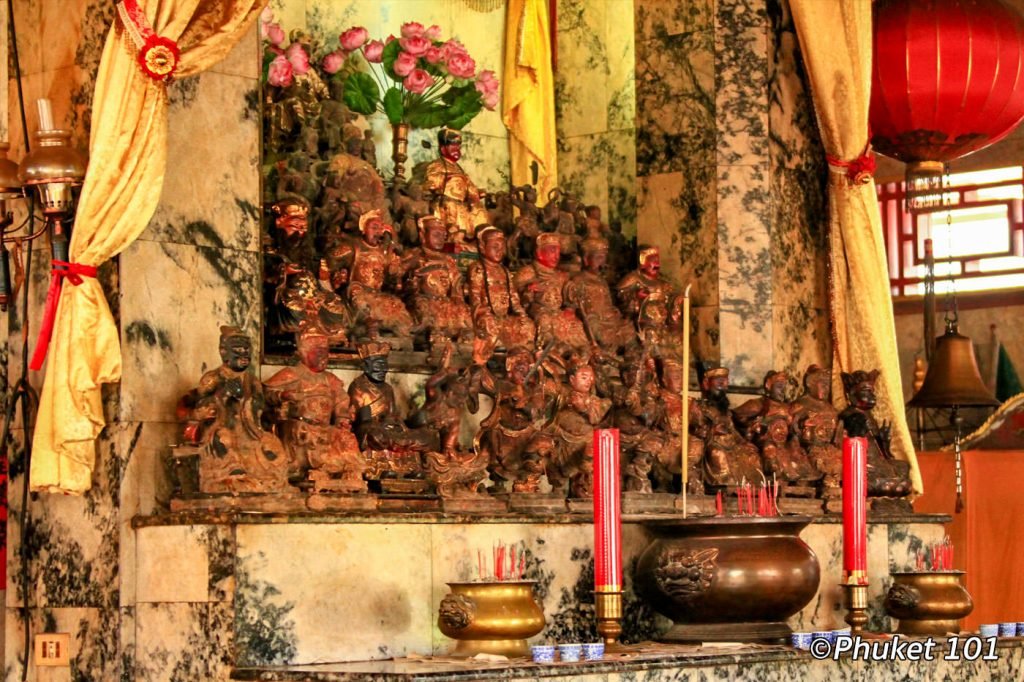
Other sights in the Kathu area include the Mining Museum, Kathu Waterfall, Phuket Wake Park and Flying Hanuman zipline park. You’ll need a car or taxi driver to reach these, as they are some distance away from Kathu Shrine.
Kathu Shrine is open to visitors every day and there’s no charge for entry, though donations are welcome. Best to wear modest clothing when you go – no swimsuits! Those visiting during the Vegetarian Festival should follow the festival precepts and wear all white.
Hours: 9 am – 4.30 pm
Kathu District
Phuket 83120
